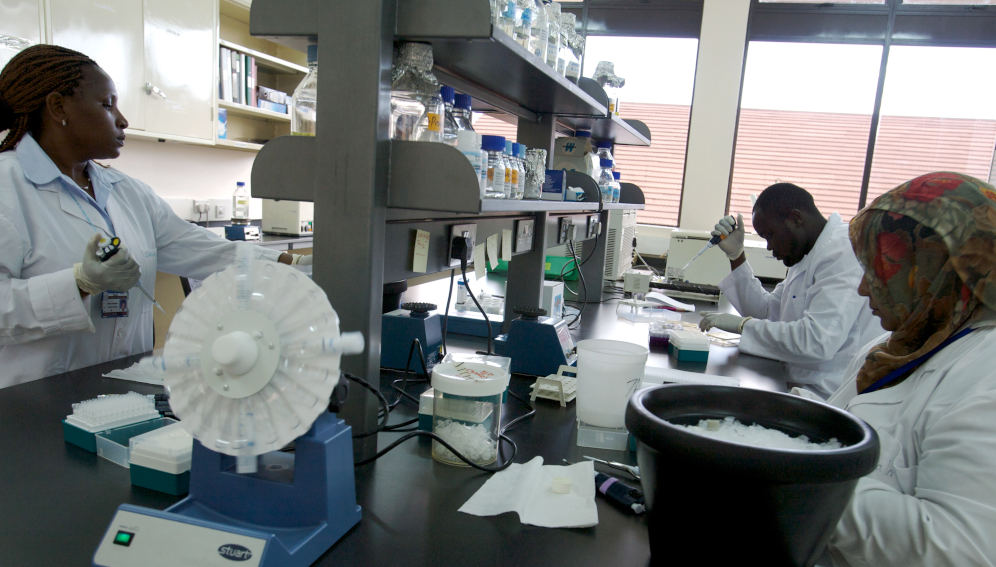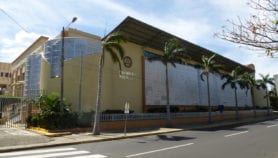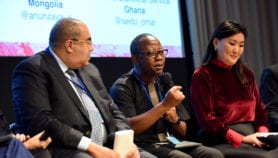03/11/23
Tambo partnerships ‘can transform research in Africa’

By: Aphelele Buqwana
Send to a friend
The details you provide on this page will not be used to send unsolicited email, and will not be sold to a 3rd party. See privacy policy.
This article was supported by the O.R. Tambo Africa Research Chairs Initiative.
[PRETORIA] Researchers across Africa need to work together to make research as effective as possible, the annual gathering of a research initiative named after a South African anti-apartheid icon heard.
The 2023 O.R. Tambo Africa Research Chairs Initiative Annual Gathering brought together researchers and scientists from across Africa to explore how to achieve research excellence through collaborations across the continent.
“We need to work together to create a more enabling environment for research in Africa.”
Fulufhelo Nelwamondo, chief executive of South Africa’s National Research Foundation (NRF)
The initiative is named after South African anti-apartheid activist Oliver Tambo, a former science teacher who co-founded the African National Congress Youth League alongside Nelson Mandela.
“We need to work together to create a more enabling environment for research in Africa,” said Fulufhelo Nelwamondo, chief executive of South Africa’s National Research Foundation (NRF), which hosted the meeting last week (25-27 October).
“We need to invest in our researchers and provide them with the resources they need to succeed,” he said.
“We also need to promote collaboration and cooperation among African researchers.”
The event culminated with an awarding ceremony for the ten leading African academics who have been selected to be O.R. Tambo Africa Research Chairs.
The research chairs, who come from seven different African countries, work across a variety of topics such as agriculture, health, climate change, and renewable energy.
Pan-African unity
“Tambo was a strong advocate for pan-African unity and cooperation,” Nelwamondo added.
He said that collaborations between the South Africa’s NRF, the Science Granting Council Initiative (SGCI), and other development partners have created a sense of relevance and impact, enabled joint programming and thinking, and provided a platform for collaboration, resource sharing, and the development of effective African solutions.
He said the O.R. Tambo Africa Research Chairs initiative in particular had “helped to break down silos and barriers in the African science ecosystem” and “helped to raise the profile of African science and to attract international attention to the work of African researchers”.
In an opening address at the meeting, Blade Nzimande, South Africa’s Minister of Higher Education, Science, and Innovation, emphasised the role of the initiative in assisting African academics to “build a better future for the continent”.
“O.R. was an exceptionally effective and engaging teacher who had a profound moral and social influence on the student community,” he said.
Nzimande said the O.R. Tambo Africa Research Chairs Initiative embodies Tambo’s life and work by promoting education, knowledge, and freedom.
Vinny Pillay, chief director of International Resources, South Africa’s department of Science and Innovation, highlighted the need for scientists in countries in Africa to collaborate and find home-grown solutions to health emergencies.
“Science knows no borders. This is also about preparing ourselves as South Africa, Africa, and the world for future pandemics,” Pillay said.
This article was supported by the O.R. Tambo Africa Research Chairs Initiative. The inititiave honours the work of Oliver Tambo, a prominent South African and pan-Africanist with a science education background. In total 10 researchers have been selected as O.R. Tambo Africa Research Chairs at leading universities across the continent. The Chairs are focused on research themes which are identified by each host institution in conjunction with national granting councils, and which are aligned with regional priorities.
This piece was produced by SciDev.Net’s Sub-Saharan Africa English desk.













